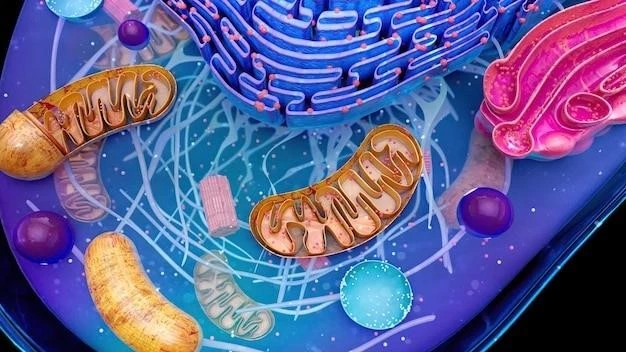Introduction
Mitochondrial Disease is a complex condition where the mitochondria in the cells are not producing enough energy. It can affect various body systems, such as brain, muscle, liver, heart, and kidney. Learn more about causes, diagnosis, and management.
Overview of Mitochondrial Disease
Mitochondrial Disease, a group of genetic disorders, results from dysfunctional mitochondria impacting energy production in cells. This condition can manifest in various symptoms affecting organs such as the brain, muscles, heart, liver, kidneys, and more. The complexity of mitochondrial diseases lies in the diverse clinical presentations and can be inherited. Research and advancements have broadened our understanding of these diseases, shedding light on diagnostic methods and potential treatments.

Causes and Diagnosis
Understanding the genetic mutations and inherited conditions that lead to mitochondrial disease is crucial for accurate diagnosis. Genetic testing plays a key role in identifying these complex disorders. Consult with healthcare professionals to explore diagnostic options.
Genetic Mutations and Inherited Conditions
Genetic mutations and inherited conditions play a significant role in the development of mitochondrial disease. Understanding the interplay between nuclear DNA (nDNA) and mitochondrial DNA (mtDNA) mutations is crucial in diagnosing and managing these complex genetic disorders. Consult with genetic experts for personalized guidance based on your unique genetic makeup.
Symptoms and Effects
Recognizing the myriad symptoms of mitochondrial disease, such as poor growth, muscle coordination issues, neurological problems, seizures, and more, is vital for timely intervention. Seek medical guidance if experiencing any of these symptoms for proper evaluation and management.
Mitochondrial diseases can have a profound impact on various body systems, including the brain, muscles, heart, liver, kidneys, eyes, and ears. Understanding how these disorders affect multiple organs is essential for comprehensive management and tailored treatment plans. Consult with healthcare providers specializing in mitochondrial diseases to address the diverse systemic effects.
Treatment and Management
Effective management strategies for mitochondrial disease focus on supportive treatments and therapies to alleviate symptoms and improve quality of life. Collaborate with a healthcare team to create a personalized care plan tailored to your specific needs and challenges.
Impact on Various Body Systems
Mitochondrial diseases can significantly impact the brain, muscles, heart, liver, kidneys, eyes, ears, and other vital organs. These effects stem from the dysfunction of mitochondria, leading to energy production deficiencies that disrupt normal cellular functions. Seeking comprehensive care from healthcare professionals familiar with mitochondrial disorders is essential to address the multisystem implications of these conditions.

Prevalence and Research
Recent advancements have revolutionized our understanding of mitochondrial diseases, shedding light on the prevalence and offering hope through ongoing research. Stay informed about the latest developments in diagnostic techniques and treatment options to empower yourself and your healthcare team in managing mitochondrial disease effectively.
Advancements in Understanding Mitochondrial Diseases
Recent years have witnessed significant progress in unraveling the complexities of mitochondrial diseases. National disease cohorts and global collaborations have enhanced our comprehension of the diverse clinical manifestations and natural history of these conditions. Stay informed about the latest research findings to better navigate the diagnosis and management of mitochondrial diseases.
Types and Classification
There are various types of mitochondrial diseases, each affecting different parts of the body, such as the brain, kidneys, muscles, heart, eyes, and ears. Understanding the diverse spectrum of these disorders is crucial for accurate diagnosis and targeted treatment approaches. Consult with specialists to explore personalized management strategies based on the specific classification of mitochondrial disease.
Diverse Spectrum of Mitochondrial Disorders
Mitochondrial diseases encompass a wide range of disorders affecting different body systems, such as the brain, kidneys, muscles, heart, eyes, and ears. These conditions arise from various genetic mutations that impact the energy production processes within cells, leading to diverse clinical presentations. Understanding the multifaceted nature of mitochondrial disorders is essential for accurate classification and tailored management approaches. Consult with healthcare professionals to navigate the complexities of mitochondrial diseases effectively.
Prognosis and Life Expectancy
Individuals with mitochondrial disease have varied life expectancies due to the complexity and diversity of these disorders. While proper treatment and management can improve quality of life, the prognosis remains unpredictable. Consult with healthcare professionals to understand the factors affecting long-term outlook and to receive personalized care.
Factors Affecting Long-Term Outlook
The long-term outlook for individuals with mitochondrial disease can be influenced by various factors, including the specific type of mitochondrial disorder, age of onset, severity of symptoms, organ involvement, and responsiveness to treatments. Additionally, the presence of associated conditions and the individual’s overall health play crucial roles in determining the prognosis. Collaborate closely with your healthcare team to understand how these factors interact and to optimize your management plan for long-term well-being;
Specialized Care and Resources
Access specialized care and resources at institutions like Mayo Clinic’s Mitochondrial Disease Clinic, offering tailored services and support for individuals with mitochondrial disorders. Collaborate with a dedicated care team for comprehensive management and the latest advancements in mitochondrial disease care.
Mayo Clinic’s Mitochondrial Disease Clinic and Services
Seek personalized care and specialized services at Mayo Clinic’s Mitochondrial Disease Clinic, where a team of experts, including geneticists, genetic counselors, and various specialists, collaborate to provide comprehensive evaluation and tailored treatment plans for individuals with mitochondrial disorders. Take advantage of this opportunity to access cutting-edge resources and participate in research initiatives for improved management outcomes.
